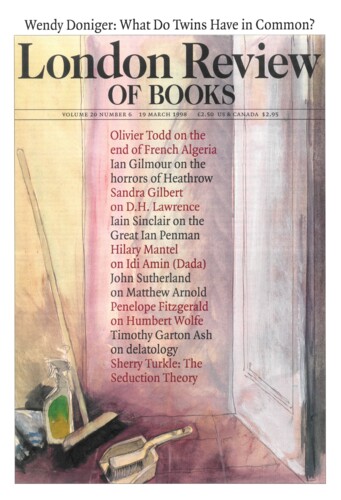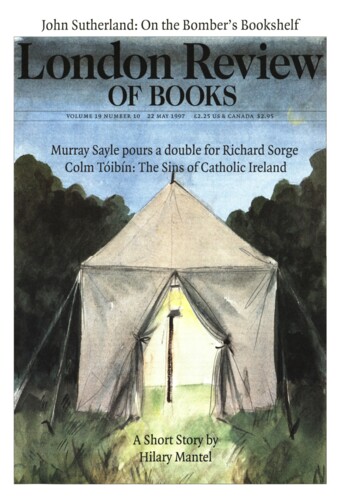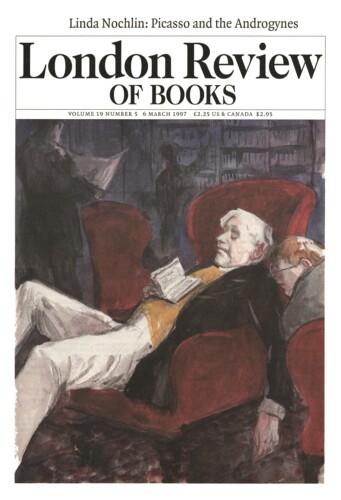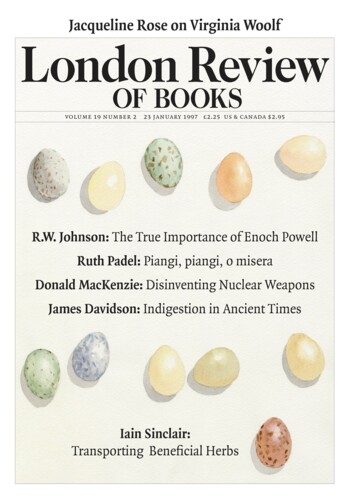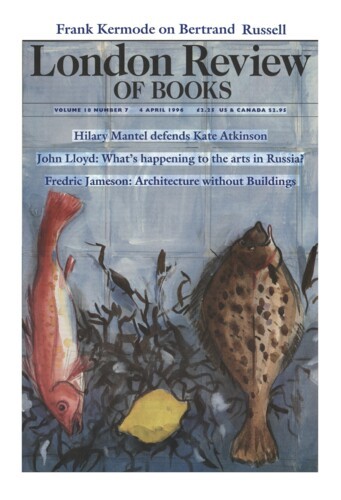Number One Id: Idi Amin (Dada)
Hilary Mantel, 19 March 1998
When in the mid-Eighties I lived in the port of Jeddah in Saudi Arabia, I lived in a city policed by gossip and run by rumour. While its citizens, flapping in white robes and black veils and wrappings, glided through the streets like formal ghosts, its guest-workers crept through their contracts, guided by intuitions as evanescent and mysterious as those of spiritualists. Perplexing questions hung in the still air. Some hung there year after year: who killed the nurse Helen Smith? Some were of immediate import: where has the main post office gone this week? Some were insoluble, questions almost too puzzling to pose: where, oh where, is Idi Amin?
